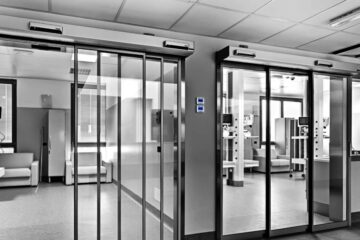Paramedical courses are specialized programs designed to train students in healthcare support services. These programs bridge the gap between medical knowledge and practical patient care. Students learn about laboratory techniques, radiology, physiotherapy, emergency care, and other allied health skills.
The curriculum focuses on both theoretical knowledge and hands-on experience, preparing graduates to work in hospitals, clinics, diagnostic centers, and research labs. For students seeking a career that combines medical expertise with technical proficiency, paramedical courses offer a strong foundation and immediate applicability in the healthcare sector.
The Demand for Skilled Paramedical Professionals
Healthcare systems are expanding rapidly, creating a significant demand for skilled paramedical professionals. Hospitals and diagnostic centers increasingly rely on trained staff to manage patient care efficiently. This demand is driven by the growth of chronic diseases, the rise in elderly populations, and the emphasis on preventive healthcare.
Paramedical professionals play a crucial role in ensuring smooth operations in labs, imaging centers, and emergency units. As a result, students entering this field can expect high employability, job security, and opportunities for career advancement in both public and private healthcare settings.
Diverse Career Paths Within Paramedical Sciences
Paramedical courses open doors to multiple career options beyond conventional hospital roles. Graduates can specialize in areas such as:
- Laboratory Technology
- Radiology and Imaging
- Physiotherapy and Rehabilitation
- Emergency Medical Services
- Occupational Therapy
Each specialization comes with its own responsibilities and growth prospects. Students can choose a path that aligns with their skills and interests. The diversity within paramedical sciences ensures that professionals can explore different roles throughout their careers, from patient-based positions to research and technical jobs.
Essential Skills and Qualifications for Success
To excel in paramedical careers, students must cultivate both technical and soft skills. Technical skills include proficiency in diagnostic equipment, lab procedures, and patient assessment. Soft skills like communication, empathy, teamwork, and problem-solving are equally important. Most paramedical courses require a minimum of 12th-grade education in science streams, particularly with biology or chemistry.
Some advanced programs may also have entrance requirements or skill-based assessments. Continuous learning and staying updated with medical advancements is essential, as healthcare technologies and protocols evolve rapidly.
Paramedical Education vs Traditional Medical Degrees
Unlike traditional medical degrees, which focus on becoming a doctor or surgeon, paramedical education equips students with practical, applied skills. The training is often shorter in duration, more affordable, and emphasizes hands-on exposure to healthcare settings. Graduates can quickly enter the workforce and contribute to patient care without undergoing long years of medical schooling.
Job Stability and Growth Prospects in Healthcare
Paramedical professionals get steady employment due to the essential nature of their work. Hospitals, clinics, diagnostic labs, and research centers constantly require trained staff. Additionally, healthcare expansions in urban and rural areas continue to increase the demand for qualified personnel.
Career progression is supported through certifications, specialized courses, and higher education opportunities. This growth potential ensures that graduates are not only employable but can also move into supervisory, teaching, or research roles.
How Technology Is Shaping Paramedical Careers
Modern healthcare relies heavily on technology, making it an integral part of paramedical training. Professionals must understand and operate advanced diagnostic tools, imaging equipment, and laboratory machines. Digital record-keeping, telemedicine, and AI-driven analysis are also becoming routine. Technology improves accuracy, efficiency, and patient outcomes, and paramedical professionals who are familiar with these tools gain a competitive advantage.
Hyderabad stands out as one of the destinations for healthcare education in India. Known for its hospitals and research facilities, the city offers access to advanced laboratories, experienced faculty, and comprehensive clinical exposure. For students seeking reputable training programs, the Best Paramedical Course in Hyderabad provides a structured curriculum, hands-on learning, and placement support.
Choosing the Right Paramedical Course for Your Goals
When selecting a paramedical course, students should consider factors like specialization, course duration, practical training opportunities, and faculty expertise. Accreditation, placement records, and industry partnerships also matter. Shortlisting courses that align with personal interests, skill sets, and long-term career plans ensures better learning outcomes.
Researching multiple institutions, visiting campuses if possible, and seeking advice from professionals already in the field can help students make informed decisions and maximize their career potential.



